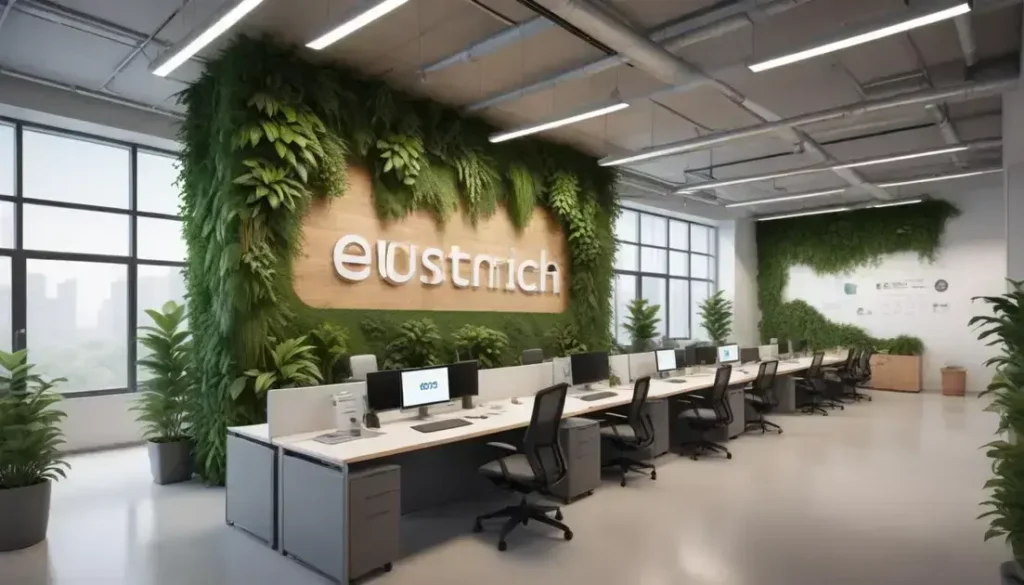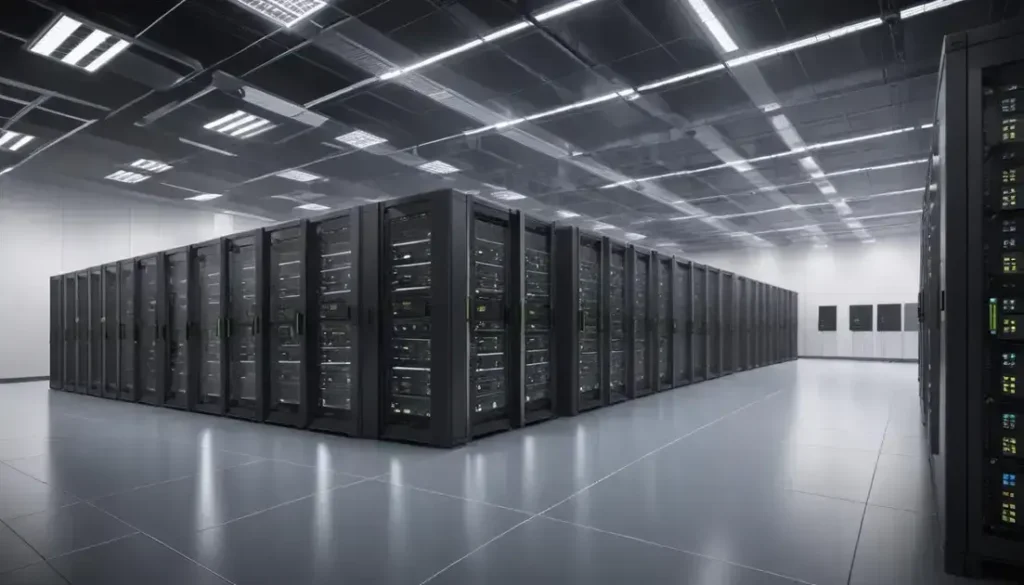AI customs solutions optimise tariff management, enhance compliance, and streamline logistics for UK businesses, enabling them to navigate complex trade regulations effectively and sustainably.
The launch of Maersk’s AI customs platform marks a transformative shift in how businesses navigate complex tariff landscapes. But what does this mean for UK firms?
Understanding Maersk’s AI-Powered Trade & Tariff Studio
Maersk’s introduction of the AI-Powered Trade & Tariff Studio marks a significant advancement in the way companies handle customs procedures. By leveraging artificial intelligence, this platform streamlines the tariff management process, enabling businesses to process data quicker and more accurately. This efficiency is crucial in today’s fast-paced trade environment.
The AI system analyzes vast amounts of trade data, providing real-time insights that help UK firms anticipate tariff changes and regulatory compliance requirements. By harnessing predictive analytics, the platform identifies trends that can impact duty payments and operational costs, helping businesses make informed decisions.
Importantly, the AI-Powered Trade & Tariff Studio seeks to enhance transparency in customs processes. It minimizes human error by automating calculations and documentation, thus reducing delays, which is often a major challenge in logistics. This seamless integration of technology allows for quicker clearance and helps UK exporters remain competitive in the global market.
Furthermore, companies utilizing this AI system can expect to improve their sustainability practices. By ensuring correct tariff classification and compliance, businesses contribute to more responsible trading, aligning with the growing demand for environmental accountability.
How AI Transforms Tariff Management for UK Businesses
The transformation of tariff management through artificial intelligence (AI) is reshaping how UK businesses operate in the global marketplace. AI systems are designed to streamline the complex processes involved in managing tariffs, helping businesses navigate fluctuating rates and compliance requirements more effectively.
By leveraging data analytics, AI provides real-time insights that assist in predicting tariff changes and assessing their potential impacts on costs. This not only enables businesses to react swiftly to new regulations but also enhances strategic decision-making processes. Those who harness these AI tools can optimise their financial forecasts and maintain competitive pricing.
Moreover, AI simplifies the classification of goods and ensures that businesses remain compliant with customs regulations. This reduces the risk of delays at ports and enhances the overall efficiency of logistics operations. Implementing an AI-driven approach not only saves time but also diminishes human error, providing a more accurate and streamlined tariff management system.
With the increasing demand for sustainability in trade practices, AI plays a crucial role in helping firms adhere to environmental regulations while managing tariffs. This dual focus on compliance and environmental responsibility is becoming essential for UK businesses aiming to thrive in a post-Brexit landscape.
The Role of AI in Environmental Compliance
The role of artificial intelligence (AI) in enhancing environmental compliance is becoming increasingly pivotal for businesses, especially in the wake of regulatory changes and heightened public awareness. AI technologies are being deployed to monitor and manage compliance with environmental standards more effectively.
One of the primary advantages of AI is its ability to process large volumes of data in real-time. This capability enables companies to track their environmental impact, ensuring adherence to regulations related to emissions, waste management, and resource consumption. By integrating AI into their operations, firms can identify areas where they can improve sustainability and reduce their carbon footprint.
Moreover, AI-driven analytics provide predictive insights that help organisations anticipate potential compliance issues before they arise. This proactive approach allows businesses to rectify problems swiftly, avoiding costly fines and reputational damage. Additionally, AI can facilitate reporting processes, making it easier for companies to compile necessary documentation and demonstrate their commitment to environmental responsibility.
By adopting AI tools for environmental compliance, organisations not only enhance their operational efficiency but also contribute to a more sustainable future. This alignment with global sustainability goals positions companies as leaders in their industries, ultimately attracting customers and investors who prioritise corporate responsibility.
Navigating Tariff Chaos: A New Era for Exporters
In the ever-evolving landscape of international trade, navigating tariff chaos has become a critical concern for UK exporters. The complexities of changing regulations and varying tariffs require businesses to stay informed and agile. With an array of factors influencing tariffs, from geopolitical shifts to trade agreements, firms must adopt strategies that allow them to respond effectively.
Exporters can leverage technology, particularly artificial intelligence, to simplify tariff management processes. By employing AI-driven tools, companies can automate data analysis, ensuring they remain compliant with the latest regulations while optimising their duty payments. These technologies analyse historical and current data, providing valuable insights into potential tariff implications of various trade routes and agreements.
Additionally, understanding the impact of tariffs on pricing strategies is essential for exporters. Companies must assess how tariffs affect cost structures and adapt their pricing models accordingly. This not only helps in maintaining competitiveness but also enhances profitability in fluctuating markets.
Moreover, exporters should focus on building relationships with customs authorities and industry associations. Engaging proactively can provide insights into future regulatory changes, allowing businesses to better anticipate shifts and adjust their strategies accordingly. Embracing this new era of tariff management is vital for exporters aiming to thrive in a complex global market.
Leveraging AI for Optimal Duty Payments
Leveraging artificial intelligence (AI) for optimal duty payments can significantly enhance the efficiency of customs processes for UK exporters. With the intricacies of international trade, AI enables businesses to navigate complex tariff structures and ensure compliance with regulatory requirements seamlessly.
AI-driven tools analyse vast datasets to identify the most cost-effective options for duty payments. By considering factors such as trade agreements, product classifications, and historical patterns, AI helps companies make informed decisions that reduce operational costs. This strategic approach not only saves money but also mitigates the risk of errors that can lead to costly penalties.
Moreover, AI automates repetitive tasks involved in duty calculations and documentation. This automation minimises human intervention, which traditionally introduced opportunities for errors. With streamlined processes, businesses can focus on core operations, benefiting from increased productivity and improved resource allocation.
In addition to financial advantages, using AI for duty payments promotes transparency in customs operations. Companies can maintain accurate records and demonstrate compliance with various regulations, enhancing their credibility with customs authorities. As trade landscapes evolve, adopting AI technologies positions exporters to remain competitive and agile in an ever-changing market.
The Intersection of Sustainability and Logistics Compliance
The intersection of sustainability and logistics compliance is becoming increasingly crucial in today’s environmentally conscious market. As regulations evolve and consumers demand greener practices, businesses must find ways to align their logistics operations with sustainability goals.
Sustainable logistics involves optimising supply chains to reduce environmental impact. AI technologies play a key role in this transformation, allowing companies to track emissions, manage energy consumption, and enhance waste management strategies. By automating these processes, firms can ensure compliance with environmental regulations, simultaneously reducing their carbon footprint.
A comprehensive approach to sustainability in logistics not only meets regulatory requirements but also improves a company’s reputation. Implementing eco-friendly practices, such as using renewable energy sources and optimising transportation routes, adds value to businesses in the eyes of consumers and stakeholders alike. This can lead to increased customer loyalty and potentially higher revenues.
Furthermore, incorporating sustainability into logistics compliance can create long-term cost savings. Efficient resource management can decrease operational costs, while sustainable practices often lead to innovations that streamline processes and improve productivity. Businesses that embrace this intersection position themselves as leaders in both compliance and sustainability, paving the way for a greener future.
Future-Proofing Customs with Safer Trade Practices
Future-proofing customs operations involves adopting safer trade practices that mitigate risks and enhance compliance in a rapidly changing global marketplace. As trade dynamics evolve, businesses must remain adaptable and proactive in addressing potential challenges.
One key aspect of safer trade practices is the implementation of robust risk management strategies. By incorporating advanced technologies, such as artificial intelligence and data analytics, customs processes can be optimised to identify and address vulnerabilities in supply chains. This proactive approach reduces the likelihood of disruptions and ensures smoother operations.
Moreover, fostering transparency in customs procedures is paramount. Businesses that prioritise clear communication with customs authorities can preemptively address compliance issues. Engaging in continuous training and support for staff involved in customs operations further enhances awareness of regulatory changes and best practices.
Additionally, adopting sustainable practices not only meets regulatory requirements but also demonstrates a company’s commitment to responsible trading. This can significantly improve a company’s reputation, aligning it with the growing consumer demand for ethical business practices. As firms work towards future-proofing their customs operations, integrating safer trade practices will be essential for thriving in the next era of global trade.
Case Studies: Success Stories of AI in Customs
Case studies showcasing successful implementations of artificial intelligence (AI) in customs processes provide valuable insights into the transformative power of technology in trade. Numerous organisations have adopted AI to streamline operations, enhance compliance, and manage risks effectively.
For instance, a leading logistics company implemented AI-driven analytics to improve its customs clearance procedures. By analysing historical data, the system accurately predicted potential delays and identified inefficiencies in the tariff classification process. The result was a significant reduction in clearance time and operational costs, demonstrating how AI can optimise workflows.
Another notable case involves a multinational corporation that employed machine learning algorithms to enhance its compliance measures. The AI system continuously monitored regulatory updates and provided real-time alerts, enabling the company to stay ahead of changes and minimise risks associated with non-compliance. This proactive approach proved essential in maintaining operational integrity across their global supply chain.
Furthermore, AI has been instrumental in fostering collaboration between businesses and customs authorities. By sharing predictive insights and compliance data, stakeholders can work together to resolve issues swiftly and ensure smoother trade flows. These case studies illustrate the potential of AI to revolutionise customs procedures, highlighting the importance of embracing technology for long-term success in international trade.
Conclusion: The Road Ahead for UK Companies
The road ahead for UK companies in the evolving landscape of international trade hinges on embracing innovative strategies and technologies. As businesses face increasing challenges from regulatory changes and global market dynamics, the adaptation of artificial intelligence within customs processes becomes essential.
Companies must invest in AI-driven tools that enhance efficiency and streamline compliance. By automating customs procedures and leveraging predictive analytics, businesses can mitigate risks associated with tariffs and regulations. This proactive approach not only ensures compliance but also positions firms for competitive advantage in a rapidly changing environment.
Moreover, fostering collaboration between stakeholders, including customs authorities and supply chain partners, will be vital. Sharing insights and data can facilitate smoother trade operations and build trust among involved parties. As UK firms work towards sustainability goals, integrating environmentally responsible practices within logistics will also bolster their reputation and appeal in the marketplace.
Ultimately, the key to future success lies in agility and preparedness. UK companies that harness the power of technology, prioritise compliance, and commit to sustainable practices will be best positioned to thrive in the complex global trade landscape. Embracing these changes will pave the way for innovation and long-term growth.
The Future of Trade is Bright for UK Companies
In conclusion, UK companies have a significant opportunity to thrive in the global trade landscape by embracing artificial intelligence (AI) and innovative customs practices. As we move forward, the integration of technology in customs processes can enhance efficiency and compliance, enabling businesses to tackle the challenges of changing regulations and competitive pressures.
By focusing on sustainability and building strong relationships with stakeholders, businesses can create a positive impact while improving their operational processes. The stories of successful AI implementations show that companies can maintain a competitive edge and lead in their industries by being adaptable and forward-thinking.
As we look ahead, it is crucial for UK firms to invest in the right technologies and strategies that will support growth. By prioritising these changes now, companies can position themselves for a successful future in international trade.
Frequently Asked Questions
How can AI improve customs processes for UK businesses?
AI can enhance customs processes by automating data analysis, predicting tariff changes, and improving compliance with regulations, making operations more efficient.
What role does sustainability play in logistics?
Sustainability in logistics helps companies reduce their carbon footprint and comply with environmental regulations, improving their reputation and customer loyalty.
How can businesses stay compliant with changing regulations?
Businesses can stay compliant by implementing AI tools that monitor regulatory changes and provide real-time alerts, ensuring they adapt quickly to new requirements.
What are the benefits of using predictive analytics in trade?
Predictive analytics helps businesses anticipate potential issues, optimise duty payments, and improve decision-making, leading to cost savings and increased efficiency.
Why is collaboration important in customs operations?
Collaboration fosters trust and transparency between businesses and customs authorities, leading to smoother trade flows and quicker resolution of compliance issues.
How can companies measure the success of AI implementation in customs?
Companies can measure success through key performance indicators (KPIs) such as reduced clearance times, lower operational costs, and improved compliance rates.


